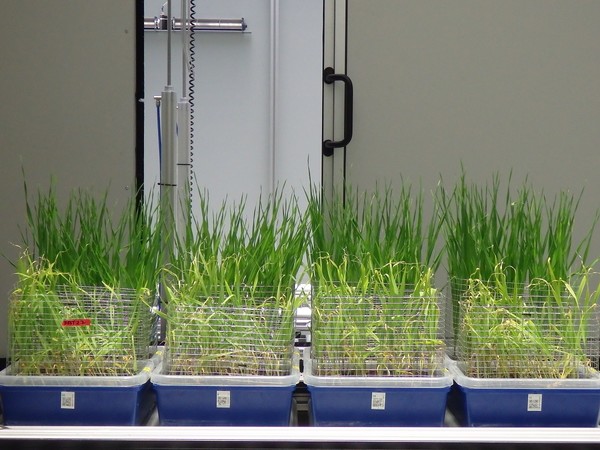A fast, gentle, and simple method for assessing the phenotype of plants, i.e. their properties and characteristics in relation to the environment, has been developed by scientists from the Centre of the Region Haná for Biotechnological and Agricultural Research (CRH). Using this method, scientists can map more effectively than ever how the plant is able to cope with stress, such as drought. The method can be useful for breeders and researchers, but also in the agrochemical industry for the development of anti-stress agents.
“We were looking for an effective tool for the comprehensive analysis of a larger number of genetically modified barley lines and for the assessment of their properties, including drought tolerance. It would take a very long time if we had to use the classical methods. Therefore, we tried to elaborate a new method, and we have managed to do so after a year of work,” said Cintia F. Marchetti from the UP Department of Molecular Biology, one of the authors of the study recently published by Frontiers in Plant Science.
Automated plant phenotyping systems allow rapid and non-invasive evaluation of plant properties. They can be used to select varieties with the best resistance to stress conditions. However, these methods are often based on an analysis of the growth of plants grown in individual pots, so the results are difficult to transfer into practice. The newly developed procedure by Olomouc researchers is different.
“Field plants do not grow in isolation, but in communities, they interact and affect one another. Our method therefore seeks to approach the real conditions more closely. It analyses not individual plants but whole populations of plants growing together in a small area. This allows us to test a large number of lines at once. This approach is very simple; as a matter of fact, it is based on analysing photographs over time,” said another author, Nuria De Diego, of the Department of Chemical Biology and Genetics. According to her, similar methods are used in field conditions, but with many limitations. Up to now, they have never been used by researchers under controlled conditions.
The method combines elements of mass screening, image analysis, and simple metabolite determination. The main monitored aspect is the height of the vegetation, which varies depending on stress and the adaptation of the plant to it. “This characteristic is also closely related to the content of some biologically active substances in plants, especially certain polyamines, which then serve as markers of stress response. This can be used both in research to compare large numbers of transgenic lines and in breeding when stress-resistant lines need to be selected quickly,” added Marchetti.
The method is the result of cooperation between several departments of the Centre of the Region Haná. “It is a follow-up to our previous work and an effort to use phenotyping not only in controlled conditions on the model plant Arabidopsis but also in field conditions. That should have bigger implications in practice,” said another co-author, Lukáš Spíchal. The research was part of the Science, Research and Education operational programme entitled “Plants as a Means of Sustainable Global Development”, which succeeded in the grant competition Excellence in Research. Scientists have verified the method on barley, but it can also be applied to other cash crops.
CRH associates research teams of the UP Faculty of Science and two Olomouc workplaces: the Institute of Experimental Botany at the Czech Academy of Sciences and the Crop Research Institute.
